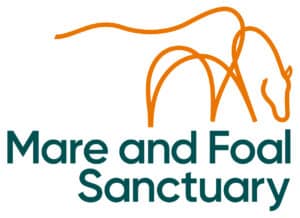What is strangles?
Strangles is a potentially deadly respiratory disease that is highly contagious. It is caused by a bacterial infection that can lead to swollen lymph nodes, nasal discharge and a fever. It can cause the nodes in the neck to become very swollen and abscesses sometimes form that can then burst. This leads to breathing problems for the horse and is what gives the disease its lethal-sounding name.
Strangles is spread by bodily fluids such as mucus, nasal discharge or burst abscesses from an infected horse. It can then also be transmitted via indirect contact on equipment, clothing and other items. Most horses survive strangles but it can kill or have long-lasting effects. Vulnerable equines are particularly at risk.
Help stop the spread of strangles
Screening new horses to a yard – It is best to test horses on arrival at a yard by giving a guttural pouch wash to identify carriers. You might also consider using the strangles vaccine if the whole yard is prepared to use it. If a horse tests positive they will need to be quarantined away from other equines.
Temperature checks – Take your horse’s temperature each day for a week to find out what’s usual for your horse. It’s then a good idea to take their temperature before and after an event or whenever your horse seems unwell.
Being cautious when travelling and at events – Get to know what’s normal for your horse. If they are unwell in any way, don’t go to shows where large numbers of horses are gathering. Be cautious about disinfecting horse boxes and equipment between uses. Make sure you don’t allow your horse to touch noses or get too close to unfamiliar horses.
Avoid sharing equipment – Always take your own equipment when you travel such as water, buckets, grooming equipment and don’t share with horses from other yards. Avoid shared water sources.
Managing an infection – If your horse does develop strangles, don’t panic. Isolate the horse or pony and call your vet for advice. Do not share any equipment with other equines and set up disinfectant, footbaths, overalls and gloves to avoid spreading the disease on hands and clothes. Signage is also a good idea to remind any human visitors to stick to infection control measures. Most equines recover but many continue to be carriers. It’s important to test your horse or pony after an infection to make sure the bacteria have cleared their system.
We are proud to support the Strangles Awareness Week campaign. For more information about avoiding, spotting and managing strangles, visit the Strangles Awareness Week Facebook page.
Our Work at The Mare and Foal Sanctuary
Advice and Resources
Lifelong Sanctuary
Rehoming



